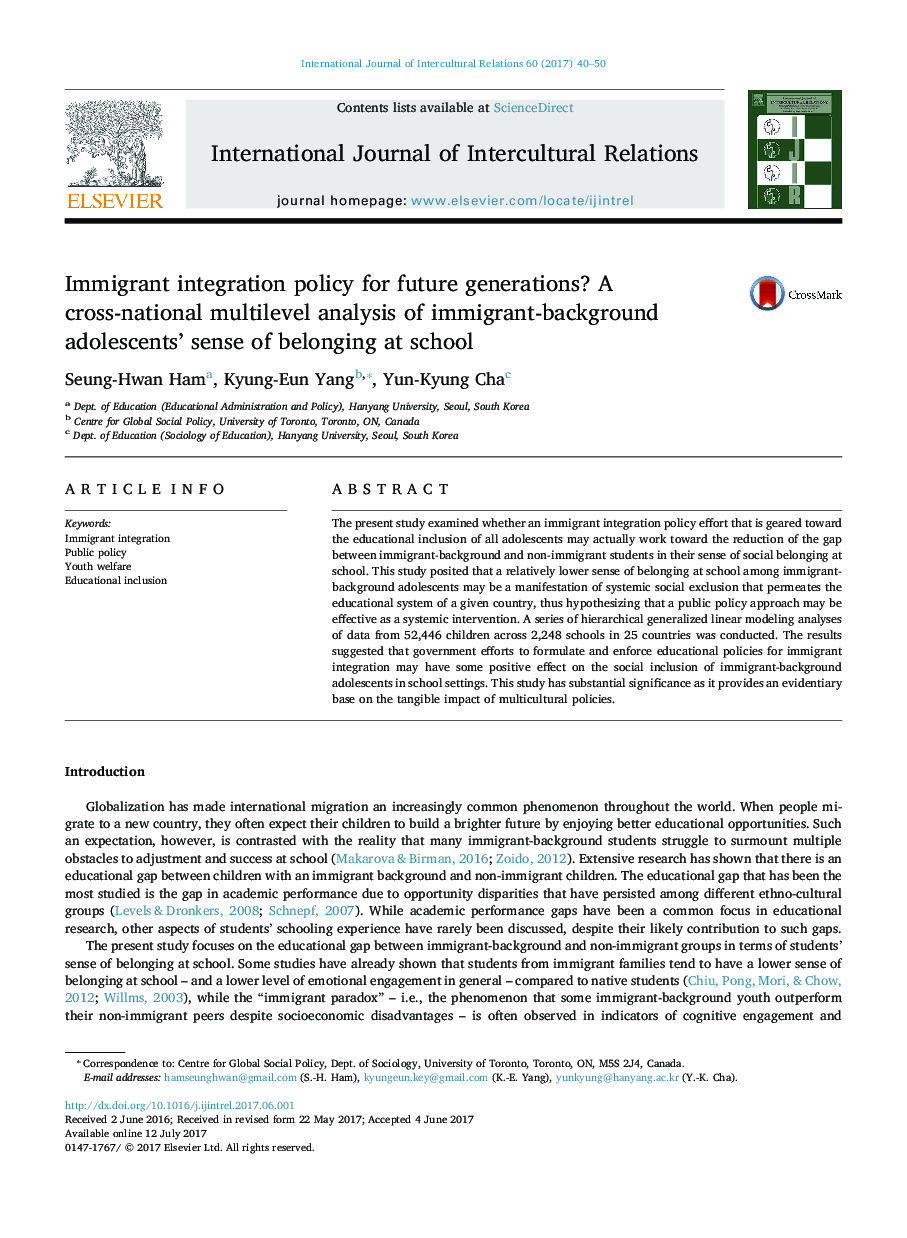| Article ID | Journal | Published Year | Pages | File Type |
|---|---|---|---|---|
| 5045532 | International Journal of Intercultural Relations | 2017 | 11 Pages |
The present study examined whether an immigrant integration policy effort that is geared toward the educational inclusion of all adolescents may actually work toward the reduction of the gap between immigrant-background and non-immigrant students in their sense of social belonging at school. This study posited that a relatively lower sense of belonging at school among immigrant-background adolescents may be a manifestation of systemic social exclusion that permeates the educational system of a given country, thus hypothesizing that a public policy approach may be effective as a systemic intervention. A series of hierarchical generalized linear modeling analyses of data from 52,446 children across 2,248 schools in 25 countries was conducted. The results suggested that government efforts to formulate and enforce educational policies for immigrant integration may have some positive effect on the social inclusion of immigrant-background adolescents in school settings. This study has substantial significance as it provides an evidentiary base on the tangible impact of multicultural policies.
